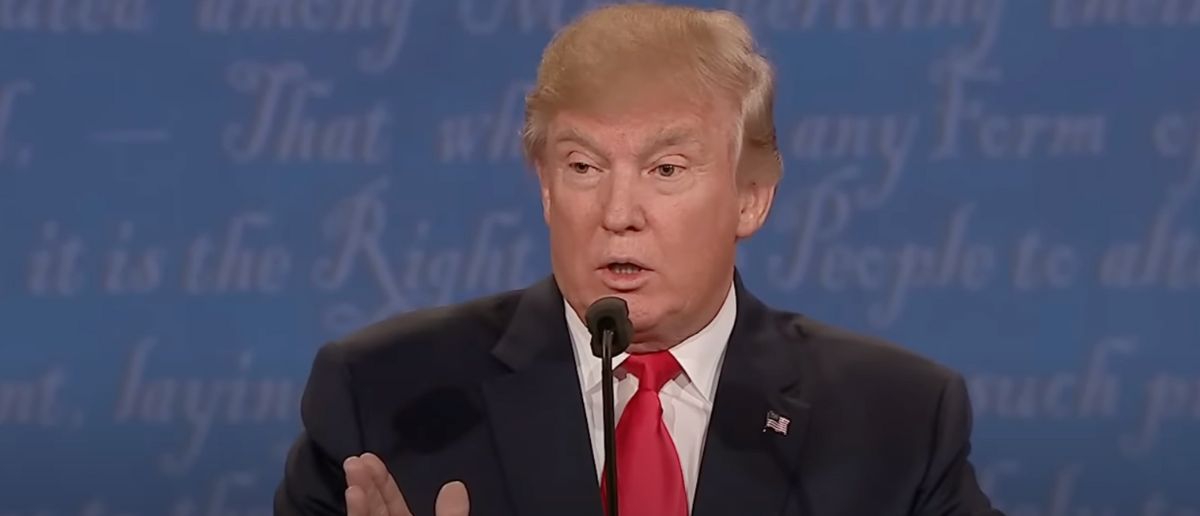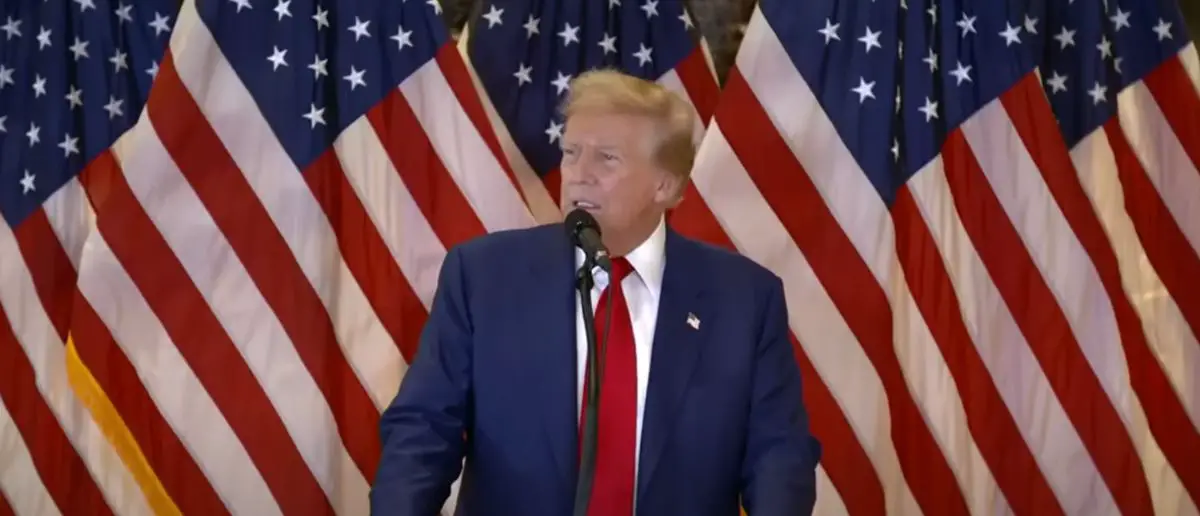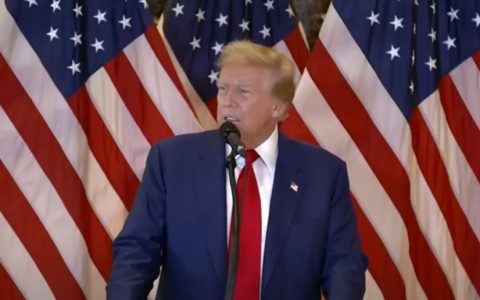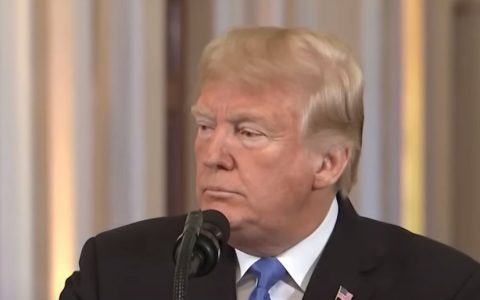
A huge fight has broken out in Congress. The battle lines are being drawn.
And now a close Trump ally has declared war on the House speaker with a five word announcement.
The U.S. Debt Crisis: A Dire Warning From Steve Bannon and Other Critics
The United States is facing an ever-growing fiscal crisis, with its national debt skyrocketing to over $40 trillion. As the country’s financial obligations continue to soar, the ability of lawmakers to manage this overwhelming debt is being called into question. Recently, former Trump White House advisor and campaign manager Steve Bannon, along with a growing chorus of critics, has harshly criticized House Speaker Mike Johnson for failing to rein in government spending and address the nation’s fiscal woes.
In a fiery broadcast on Bannon’s War Room, Bannon did not mince words. He took aim at Johnson after the failure of the Speaker’s proposed spending bill, which was opposed by figures like Elon Musk and dismissed by President-elect Donald Trump. The failed bill, which was supposed to fund the government and provide a temporary solution to the debt crisis, was met with widespread criticism for its lack of transparency and for including unnecessary provisions. In his usual blunt manner, Bannon condemned the proposal as another example of the incompetence and corruption that have become synonymous with Washington, D.C. politics.
Bannon’s critique was rooted in the massive, unsustainable U.S. national debt, which has now surpassed a staggering $40 trillion. With interest payments alone set to spiral into the trillions, the government is facing a fiscal nightmare. “I’m just saying, it’s $40 trillion. 400 days from now as sure as the turning of the earth. And we’re never gonna pay off a penny of that face amount of that debt,” Bannon said, adding that the interest payments will likely exceed $1 trillion annually.
The weight of this debt is becoming more evident by the day, as the government finds itself unable to control its spending or reduce its obligations. The $40 trillion figure is not merely a statistic but a harbinger of financial collapse unless serious reform takes place. The nation is on track to be burdened with this astronomical sum indefinitely, with no realistic plan to pay it down. As Bannon pointed out, “Not one penny will we ever pay off,” and the implications of this are disastrous for future generations.
Steve Bannon: Mike Johnson Has Got To Go pic.twitter.com/NoDWIGzCBW
— Bannon’s WarRoom (@Bannons_WarRoom) December 18, 2024
Corruption, Incompetence, and the Need for New Leadership
Bannon’s frustrations were not just about the size of the debt but also about the lack of accountability and transparency within the U.S. government. He criticized Speaker Johnson for failing to demand more stringent measures, especially when it came to the disclosure of critical details about the spending bill. “Yes, it’s got to be purged and reformed and look at this thing up here. It’s so corrupt and so incompetent, so gutless,” Bannon lamented.
The absence of transparency in the legislative process, especially around a bill of such immense significance, highlights the disconnect between the American people and their elected representatives. Bannon’s call for “reform” and “purging” of the system comes from the belief that Washington’s leaders are more interested in self-preservation than in addressing the dire challenges facing the nation. He went as far as to say, “He’s got to go, he’s got to go,” referring to Speaker Johnson, signaling a deep frustration with leadership that many Americans share.
This lack of effective leadership is exemplified by the inclusion of provisions in the spending bill that critics say serve only the interests of lawmakers, not the American people. The bill proposed the first pay raise for members of Congress in 15 years, a move that many see as tone-deaf in a time of soaring inflation. While Americans struggle with rising living costs under the Biden administration, lawmakers appear to be more concerned with their own compensation.
Vivek Ramaswamy, an entrepreneur and political commentator, also weighed in on the issue, sharply criticizing the federal funding bill. In a post on X (formerly Twitter), he warned that the debt-fueled spending sprees being pursued by Congress may feel good in the short term but ultimately harm the very people they are supposed to help. “Debt-fueled spending sprees may ‘feel good’ today, but it’s like showering cocaine on an addict: it’s not compassion, it’s cruelty,” Ramaswamy wrote. His comparison to drug addiction truly shows the perilous nature of continued borrowing to fund government operations.
This cannot & will not pass. https://t.co/7A1223XucP
— Vivek Ramaswamy (@VivekGRamaswamy) December 18, 2024
Critics like Ramaswamy and Bannon argue that this kind of spending, driven by political expediency, is a short-sighted solution to long-term problems. It does not address the underlying issues of systemic waste, corruption, and an out-of-control government apparatus. Instead, it kicks the can down the road, piling debt onto future generations and leaving the country more vulnerable to financial collapse.
The Existential Threat of the U.S. Federal Debt
The U.S. national debt is no longer just a financial issue; it is a national security threat. The unsustainable debt load poses an existential risk to the country’s future stability. If left unaddressed, it could lead to catastrophic consequences. The debt’s interest payments consume an ever-increasing portion of the federal budget, crowding out spending on essential programs like infrastructure, defense, and education. Meanwhile, the country’s ability to respond to crises — whether financial, military, or environmental — could be severely hampered.
As the U.S. continues to borrow to meet its obligations, it risks undermining its credibility and financial stability on the global stage. A crisis of confidence in the dollar could lead to higher borrowing costs, inflation, or even a loss of its status as the world’s reserve currency. The economic consequences would be devastating, and the social and political ramifications could destabilize the very fabric of the nation.
In the long term, the debt threatens to undermine the fundamental principles of the American experiment. If the government cannot rein in its spending and deal with the debt in a meaningful way, the future of the nation itself could be at stake. For all the rhetoric about American exceptionalism, the reality is that the U.S. is teetering on the edge of a financial precipice. The time to act is now — before it’s too late.
Stay tuned to the DC Daily Journal.





